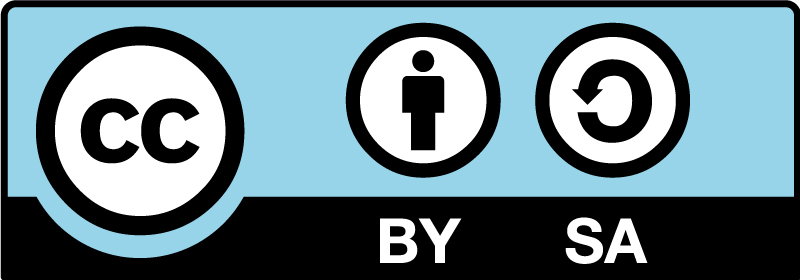The following message is sent on behalf of David H. Farrar, Provost and Vice President Academic (Vancouver) and Doug Owram, Deputy Vice Chancellor and Principal (Okanagan).
The University of British Columbia is transitioning to a new copyright environment and has given notice to Access Copyright (AC) that it will not operate under the interim tariff after August 31, 2011. This will affect your teaching, research, and administrative work.
The background and practical consequences of this decision are outlined below.
Why has UBC made this decision?
UBC has 660 existing licence agreements with publishers valued at almost $10 million, under the terms of which UBC has paid copyright fees. In order to copy materials that are not included under these licence agreements. UBC also paid copyright fees to AC, an organization that collects these fees for publishers under a licence negotiated by the Association of Colleges and Universities (AUCC) on behalf of all Canadian universities outside Quebec. These fees are payable by universities for copying material from scholarly journals, textbooks, and other materials. The last AC licence agreement ended on December 31, 2010. AC declined to renew its agreements with the universities and instead applied to the Copyright Board of Canada for approval of a tariff that included a dramatic increase in fees paid by each university to Access Copyright. The tariff they applied for would increase the cost from $650,000 to $2 million per annum.
Moreover, the proposed tariff would require universities to give AC access to their records and systems to conduct annual surveillance of copying activities undertaken by their faculty, staff, and students. UBC considers this to be unacceptable.
What steps has UBC taken?
In response to these proposals, AUCC and others filed objections. On December 23, 2010, the Copyright Board issued an interim tariff to come into effect on January 1, 2011, pending consideration of objections. As per broadcast messages from then-Vice Provost Wes Pue on December 23, 2010 (for the Vancouver Campus) and from then-Associate Vice President Gwen Zilm (for the Okanagan Campus), UBC made a decision to continue to operate under the interim tariff for the short term while it considered the best way to implement the internal changes and mechanisms necessary to support faculty, staff, and students over the longer term.
UBC has now decided that the right decision and the best way to meet the needs of faculty, staff, and students is to operate outside of the interim tariff effective August 31, 2011. UBC is taking this step with several other universities, including: University of Calgary, University of Alberta, University of Saskatchewan, University of Manitoba, York University, University of Waterloo, Queen’s University, and Dalhousie University.
How will this affect the work of faculty, staff, and students?
It is very important that faculty, staff and students abide by the requirements of the Canadian Copyright Act when making copies or distributing information electronically. The Canadian doctrine of “fair dealing” is considerably more restrictive than the American doctrine of “fair use.” Even when using copyrighted materials from the United States, we must follow Canadian copyright law. Failure to do so can have serious consequences for the university and individuals.
Course packs prepared and printed by the Bookstore prior to August 31, 2011, were produced under the interim tariff and can be retained. Any future course packs should continue to be produced through the Bookstore. Please note, however, that additional lead time might be necessary to clear copyright after September 1, 2011.
What support is available?
We are committed to providing support to faculty, staff, and students:
- For more information please look at UBC’s new web site: copyright.ubc.ca. This provides a central resource for information about copyright and how to use copyrighted materials in a manner that is consistent with Canadian copyright law.
- The web site includes a document entitled “Copyright Guidelines for UBC Faculty, Staff, and Students.” All faculty, staff, and students should review this document carefully to ensure that they are aware of the requirements for operating safely outside of the interim tariff.
In addition, UBC has established a Copyright Advisory Group, which will respond to questions and provide advice to members of the UBC community regarding appropriate use of copyrighted material. The Library, Bookstore, Centre for Teaching, Learning and Technology (CTLT-Vancouver), Centre for Teaching and Learning (CTL-Okanagan) and the Office of the University Counsel resource this Group.
UBC is also in the process of:
- enhancing its arrangements with Xerox for course pack production to minimize the impact on both the faculty members who rely on printed course packs in teaching and the students who need to purchase them;
- developing more efficient processes for securing transactional permissions to use copyrighted material on a case by case basis.
- customizing its Blackboard (including, WebCT Vista) learning management systems to better communicate the requirements of the Copyright Act when posting materials for student use; and
- expanding opportunities for faculty to participate in workshops and access online training materials on this important subject.
Over the next year, UBC will also:
- implement a new electronic reserve system that includes copyright clearance tracking with the intent to integrate with Blackboard; and
- continue to expand the range of electronic materials available for use by UBC faculty, staff, and students under licence.
What other steps are being taken?
UBC continues to work with other universities and the AUCC to respond to AC’s tariff application and to advocate the adoption of improved copyright laws that are responsive to the needs of the academic community.
For updates and information regarding copyright at UBC, please visit: copyright.ubc.ca. If you have any questions or comments, please contact the Copyright Advisory Group at ubc-copyright@interchange.ubc.ca.
